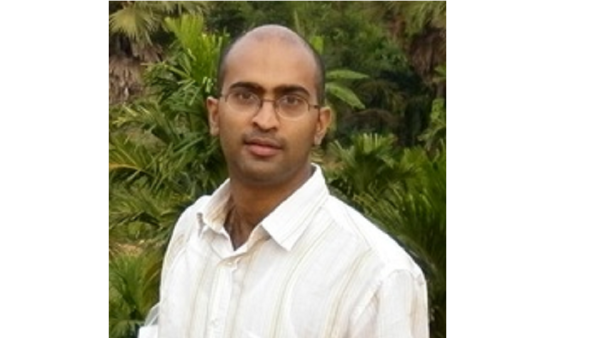Lost Muslim and Arab Identities of Goan Indians Explored at Georgetown Research Webinar at QF

The Indian state of Goa’s historical connections to the Arabic speaking world and its colonial past play an important role in Goan identity. However these connections have faced erasure through state-led efforts to create a homogenous national identity, explained anthropologist Jason Keith Fernandes at a public webinar titled “A Cure for Foolishness: Finding Goa in the Indian Ocean World”, hosted by the Indian Ocean Working Group (IOWG) research initiative at QF-partner Georgetown University in Qatar (GU-Q).
While recognizing Goa’s strong cultural and geographical Hindu identity, Dr. Fernandes, who works as a Researcher at the Centre for Research in Anthropology in the University Institute of Lisbon, Portugal, argued that an understanding of Goan identity must also recognize historical Muslim, Arab, African, and Portuguese influences that are reflected in Goa’s uniquely diverse communities, and which connect it to the wider Indian Ocean World.
“Through this webinar, we hoped to provide an opportunity for students, scholars, and the public to learn more about what makes Goa so distinctive from its surrounding territories, and how historical links between the Gulf and the wider Indian Ocean World continue to reverberate in our contemporary understanding of the region,” explained Dr. Uday Chandra, who heads the IOWG at GU-Q.
In his presentation, Dr. Fernandes noted that while Qatar and the Gulf region is host to a large Goan community today, the ties between Goans and Arabs go back in history, even predating the advent of Islam. Sharing slides of 16th century Japanese art screens on display at the Metropolitan Museum of Art in New York City, he explained the significance of the imagery of Goan Arab and Portuguese traders doing business in the Far East.
“One of the screens portrays a figure that is turbaned in a flowing gown and counting the beads of what looks like a tasbeeh or Islamic rosary. This image is fortuitous because it allows us to draw the largely marginalized Muslim into our image of Goaness,” he said. He also shared the art of the Portuguese-Goan artist Vamona Navelcar whose work reflects themes of Goa’s diversity.
These diverse communities have been excluded from postcolonial histories following the region’s independence from Portugal in 1961 after almost 500 years of rule, through state-led efforts that promoted Hindu mythologies and made Konkani the official language, sidelining the largely Gujarati and Portuguese-speaking territories.
Dr. Fernandes critiqued this narrowing of identity, saying: “Goa has been more than a small provincial location but an international and imperial sub-center in the Indian Ocean World. It gave identity to groups of persons larger than those who could claim a mythical tie to the land.”
Since 2014, the Indian Ocean Working Group at GU-Q has convened researchers from Doha and across the world to build collaborative expertise across the boundaries of traditional area studies to remap the Indian Ocean World.
Background Information
Georgetown University in Qatar
Established in 1789 in Washington, DC, Georgetown University is one of the world’s leading academic and research institutions. Georgetown University in Qatar (GU-Q), founded in 2005 in partnership with Qatar Foundation, seeks to build upon the world-class reputation of the university through education, research, and service. Inspired by the university’s mission of promoting intellectual, ethical, and spiritual understanding, GU-Q aims to advance knowledge and provide students and the community with a holistic educational experience that produces global citizens committed to the service of humankind.
Located in Doha’s Education City, GU-Q offers the same internationally recognized Bachelor of Science in Foreign Service degree as Georgetown’s Capitol Campus in Washington, DC. This unique, interdisciplinary program prepares students to tackle the most important and pressing global issues by helping them develop critical thinking, analytic, and communication skills within an international context. GU-Q alumni work in leading local and international organizations across industries ranging from finance to energy, education, and media. The Qatar campus also serves as a residency and delivery location for the Executive Master’s in Emergency and Disaster Management along with the Executive Master’s in Leadership.







